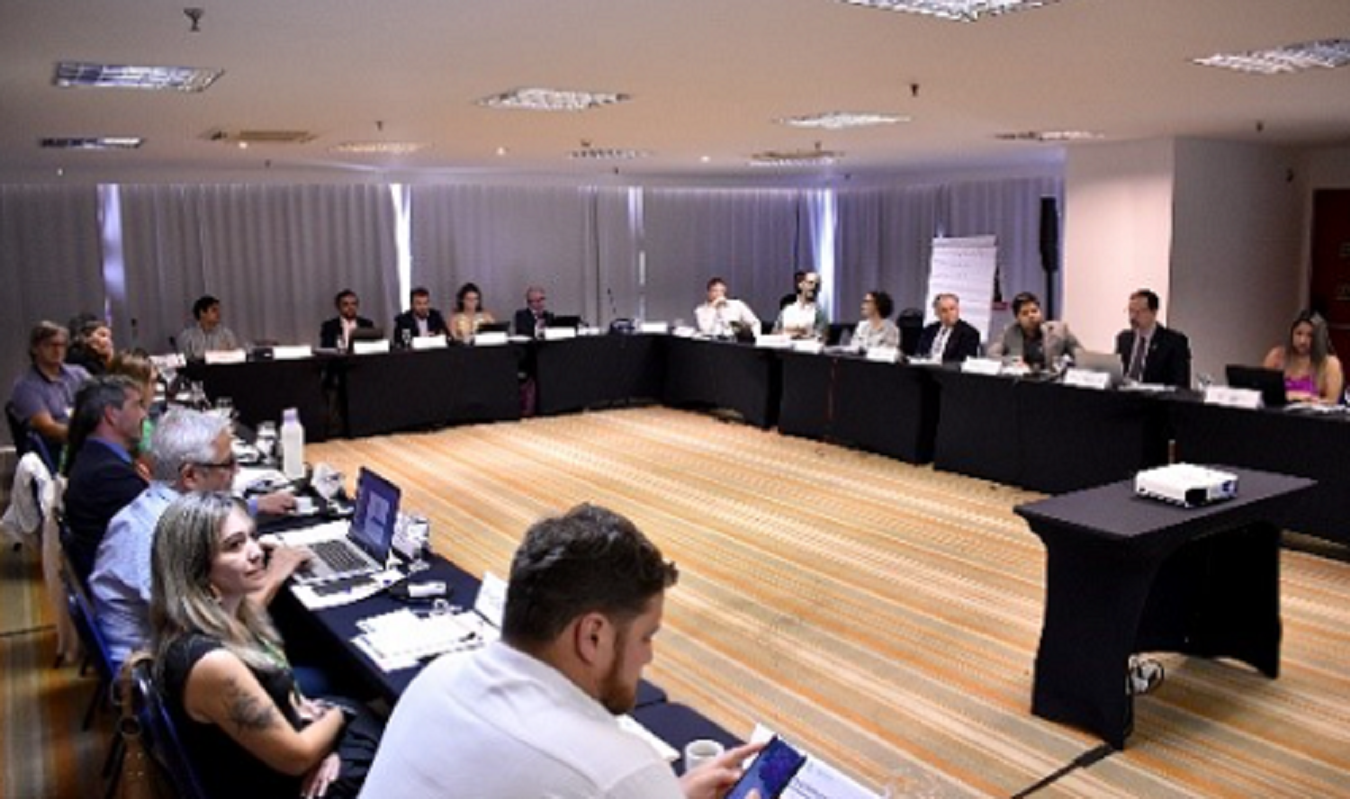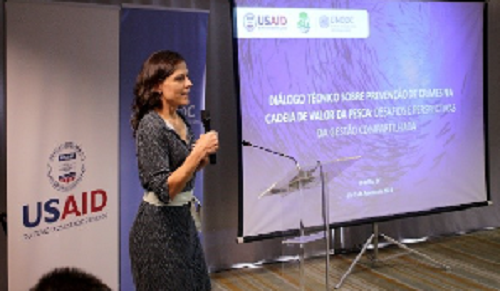
Brasilia, 10 August 2023 - Discussing the challenges of shared management and joint efforts to prevent crimes in the fisheries sector - these were the objectives of the "Technical Dialogue on Crime Prevention in the Fisheries Value Chain", promoted by the United Nations Office on Drugs and Crime (UNODC) in Brazil on 8 and 9 August in Brasilia.
The meeting brought together representatives of the Brazilian Federal Government, environmental authorities, the Public Prosecutor's Office, civil society, and representatives of the Government of Ecuador. The activity was developed within the framework of the UNODC ECOS project - Regional Cooperation to Combat Environmental Crimes, supported by USAID.
Throughout the two-day event, participants discussed the topic from multiple perspectives, from fisheries policy and the scenario of industrial and artisanal fishing in the country, through the performance of inspection bodies, legal aspects, export control, monitoring and traceability mechanisms, valuation of environmental damage, and data and information management.
"The event was an opportunity to promote dialogue between the actors involved in fisheries management in Brazil and other relevant actors, to discuss the different perspectives, challenges, and main strategies to face crimes in the fisheries value chain," highlighted the coordinator of the ECOS project in Brazil.
Experiences in the monitoring and traceability of protected fish species were also presented, such as the management of pirarucu in the Amazon and the traceability system for pirarucu products and by-products, which is under development. Participants emphasised the importance of interinstitutional coordination and community engagement for the conservation and legal and sustainable use of fisheries resources, especially endangered species.

Regional cooperation - Another highlight of the meeting was the participation of Juliana García and Janneth Contreras, representatives of the Vice-Ministry of Aquaculture and Fisheries of the Ministry of Production, Foreign Trade, Investments and Fisheries of Ecuador. The guests presented the regulations, structures, and mechanisms used in fish traceability in the country, which, in 2019, restructured its fisheries management, making it a successful model responsible for promoting the activity.
"It was a very productive meeting, in which we were able to hear about the reality shared by Latin America in relation to the administration of resources and governance of the sector, and we were able to share, from Ecuador's perspective, what progress we have made," said Contreras, a specialist in Fisheries and Aquaculture Policy.
Crimes in the fisheries value chain – According to UNODC's approach, crimes in the fisheries sector encompass various illegal activities that can occur along the value chain, such as fraud and counterfeiting, corruption, money laundering, tax crimes and trafficking in persons for forced labour. These are crimes that are not associated with fishing itself, but can occur throughout the stages of preparation of the fishing activity, through processing and transport, to sale to the consumer.
Throughout the Technical Dialogue, participants were able to learn more about this approach and the possibilities for cooperation with UNODC, through technical support for capacity building, sensitisation of key actors and dissemination of knowledge and best practices.
At the end of the meeting, participants were invited to identify needs and possibilities for articulation, defining possible future actions, such as new spaces for dialogue to discuss competences throughout administrative control, in addition to identifying control points that need improvement. Over the coming weeks and in contact with the participants, the ECOS team will systematise the referrals to define the next steps.
ECOS Project - The "Technical Dialogue on prevention of crimes in the fisheries value chain" was held as part of the UNODC ECOS project, supported by USAID. The initiative aims to strengthen regional co-operation and the technical capacity of Brazilian authorities, justice system actors and law enforcement to detect, intercept, investigate and prosecute environmental crimes, among them crimes in the fisheries value chain.
Learn more about UNODC approach to crimes in the fisheries sector here.
For more information on UNODC's work on environmental crime, visit here.
Aprenda mais: http://www.agenda2030.com.br/
Todas as notícias